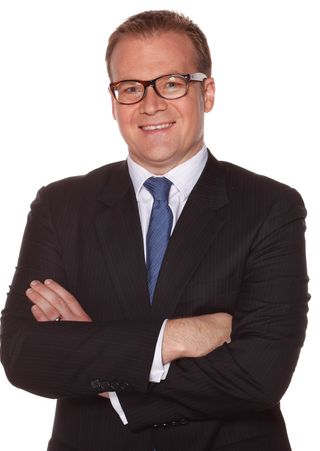ABC The Drum
Of all the apparent diversity among Republican presidential hopefuls, the entry of the first and probably only female candidate, Carly Fiorina, is probably the most important, writes
The entrants into the 2016 US presidential race are suddenly coming thick and fast.
In the past month we have seen Republicans including senator Rand Paul of Kentucky and senator Marco Rubio of Florida get into the contest. Today two non-politicians — neurosurgeon Dr Ben Carson and businesswoman Carly Fiorina also announced they will be standing for their party's presidential nomination next year.
They all join senator Ted Cruz of Texas who got the jump on the rest in late March, and former governor Mike Huckabee of Arkansas (and Fox News) who is widely expected to announce his campaign for president tomorrow.
The field of presidential hopefuls is already taking on a more diverse look than recent Republican fields, with two candidates with at least one Hispanic parent (Cruz and Rubio), an African-American (Carson) and now a woman (Fiorina).
Other likely Republican contenders Jeb Bush, Scott Walker, Chris Christie, Rick Santorum and Rick Perry will mean that demographically the Republican contenders still have a white male skew, although Indian-American governor Bobby Jindal of Louisiana is also considering a tilt at the oval office.
On the other side, the Democrats are looking very white and pretty darn old right now. Hillary Clinton is 67 and the only other declared candidate, socialist senator Bernie Sanders of Vermont is a spry 73. Other probable contenders like former Virginia senator Jim Webb, former Maryland governor Martin O'Malley and former Rhode Island governor Lincoln Chafee all fit neatly into the white male mould.
While the lack of diversity on the Democrats side is in large part due to the vice-like grip Clinton currently has on the nomination, the Republicans are assembling a field that will more closely resemble the face of modern America.
According to the US Census Bureau, America's population of about 319 million is 62.6 per cent white, 17.1 per cent Hispanic or Latino, 13.2 per cent black or African-American, 5.3 per cent Asian and 1.2 per cent Native American.
But of all the apparent diversity on the Republican side, the entry of the first and probably only female candidate Carly Fiorina is probably the most important.
Just as they did heading into 2012, Republicans already know who their eventual nominee is (almost certainly) going to be up against in the general election. That makes their selection process about who is the best candidate to beat Clinton.
Part of Clinton's electoral strength is the support she has from America's female voters, many of whom think the first female president is way overdue. A recent Gallup poll found 56 per cent of women had a favourable view of Mrs Clinton, with 32 per cent unfavourable — giving her net favourability with women of +24 per cent — far better than any likely rivals.
Women make up 50.8 per cent of the population of the United States but 53 per cent of voters in 2012. Democrat Barack Obama won the female vote over Mitt Romney by 56 per cent to 44 per cent while losing the male vote by 8 per cent to the Republican — women made the difference.
This is where Fiorina comes in.
Just as African-America businessman Herman Cain enjoyed a unique ability when he ran for the Republican nomination in 2012 to attack president Obama without being called a racist, Carly Fiorina can criticise Clinton's record without being dismissed as a sexist.
Fiorina has never won elected office, she tried and failed to win a Senate seat in California in 2010, and she is highly unlikely to win the Republican nomination, much less the presidency. But she can claim to have smashed the glass ceiling when she became CEO of the tech company Hewlett Packard in 1999 — the first woman to lead a Fortune 20 business. Remember, Hillary only claimed to have cracked it.
Under Fiorina's leadership, HP merged with Compaq, grew from the 28th to the 11th largest company in America, and laid off about 30,000 workers. Fiorina fell out with the board and left in 2005. But it's the kind of record that will look pretty good to the business interests that hold considerable sway in the GOP, but would play badly in the broader electorate were she nominated for president, just as sackings haunted Mitt Romney's 2012 campaign.
But as an anti-politician, and an anti-Hillary, Fiorina will be a very useful addition to the Republican field. She can remind voters that Clinton is very much of the political class, and has been in politics in one way or another since the 1970s.
Announcing her candidacy on ABC's Good Morning America she said: "I think I'm the best person for the job because I understand how the economy actually works. I understand the world; who's in it."
And Fiorina continued that in her view Clinton is "clearly not trustworthy" and "has not been transparent on a whole set of things that matter".
Just as Romney's campaign in 2012 was aimed at giving previous supporters permission not to vote again for Obama, Fiorina will be telling the women of America it's OK for them not to vote for Clinton. If she does that effectively, we could see even Fiorina following in the footsteps of Sarah Palin as the Republican's vice-presidential nominee.
This will be an interesting contest.
This article was originally published at ABC The Drum





